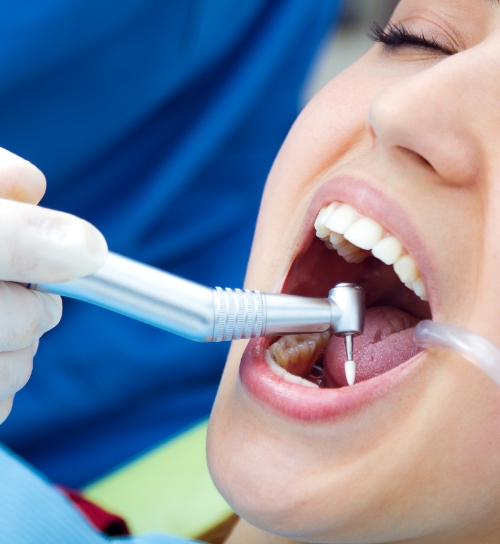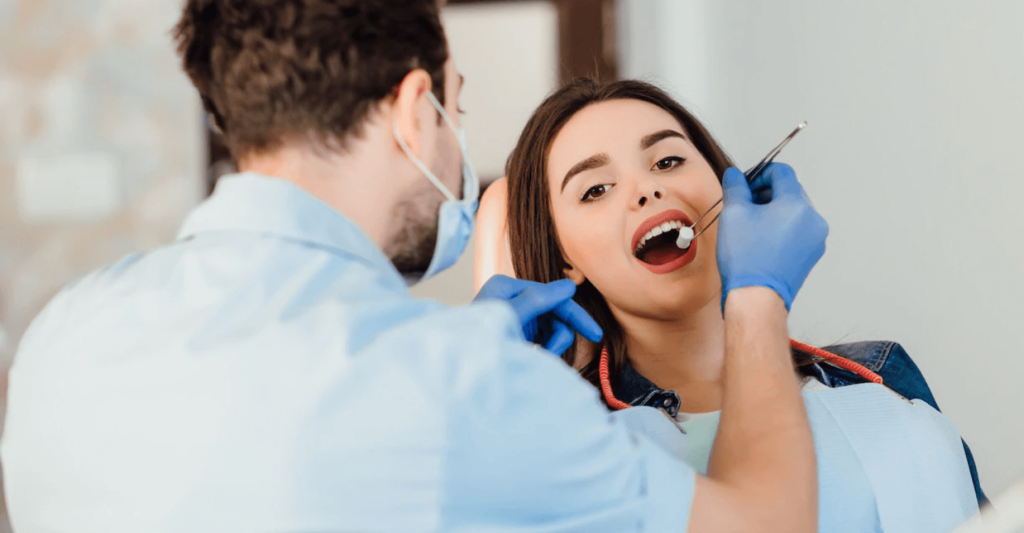
What Is Sleep Apnea?
Sleep apnea materialises when a person’s breathing is interrupted during sleep. If left untreated, a person with sleep apnea might stop breathing many times during sleep.

Types of Sleep Apnea
- Obstructive Sleep Apnea: When the throat muscles are relaxed too much to allow you to breathe normally.
- Central Sleep Apnea: When the brain does not send appropriate signals to the muscles that control breathing.
- Mixed Sleep Apnea: Combines obstructive and central sleep apnea.
Many patients are surprised when our dentist asks them if they have sleep apnea! But obstructive sleep apnea could be related to your oral health, and a dentist is often the first one to diagnose it.

What Happens During The Sleep Apnea Procedure?
The dentist might perform a hands-on examination to determine the obstruction in your breathing. Our dentist will take X-rays of your mouth and neck. It will reveal if there are any abnormally large tissues in the throat or other blockages in the airway.
Dentists may provide mouth appliances that can help you treat sleep apnea. Three main types of machines are a mandibular advancement device (MAD), tongue retaining device and mouthguard. However, some fundamental changes, such as changing your sleeping position or pillow, might help you.

How Much Would It Take You To Recover?
The recovery time for sleep apnea treatments is relatively short. Once our dentist completes the treatment sessions, you can immediately return to your daily activities. However, please remember that Laser-assisted Uvulopalatoplasty(LAUP) and Uvulopalatopharyngoplasty (UPPP) treatment may require extra sessions.

Why Choose Us For Sleep Apnea Treatment?
For milder cases of sleep apnea, our dentist may recommend lifestyle changes, such as losing weight. In the case of nasal allergies, you may undergo treatment only for allergies.
Several other treatments are available if lifestyle changes do not work for you. Specific oral devices can help you open the blocked airway. Our dentist, in collaboration with your physician, will likely refer you to a sleep disorder centre where a sleep specialist can determine further evaluation. The evaluation tests involve:
- Nocturnal Polysomnography: This equipment will monitor your heart, lung and brain activity for breathing patterns, leg and arm movements, and oxygen level while you sleep.
- Home Sleep Tests: It measures your heart rate, airflow, breathing patterns and oxygen level with the simplified home test kit.
Post these tests, and if they find sleep apnea, they might refer you to an ENT specialist to rule out the blockage in your nose or throat. A cardiologist will also analyse the nervous system to determine if it is central sleep apnea.
FAQs
What are the benefits of oral devices for obstructive sleep apnea?
- Easier to take along when travelling
- Works without electricity
- Improves moodiness and concentration issues and eliminates snoring
What are the risks of oral devices for obstructive sleep apnea?
- Bite changes
- Lost teeth
- Pain in the jaw or TMJ pain
- Need for dental replacement
- Dryness in mouth
- Excessive drooling
If I snore, do I have sleep apnea?
No, it is not necessary. However snoring is an indication of sleep apnea, but it is also a sign of sleep disorder. Simple snoring results from partial obstruction in the upper airways, but it is not always accompanied by apnea.
